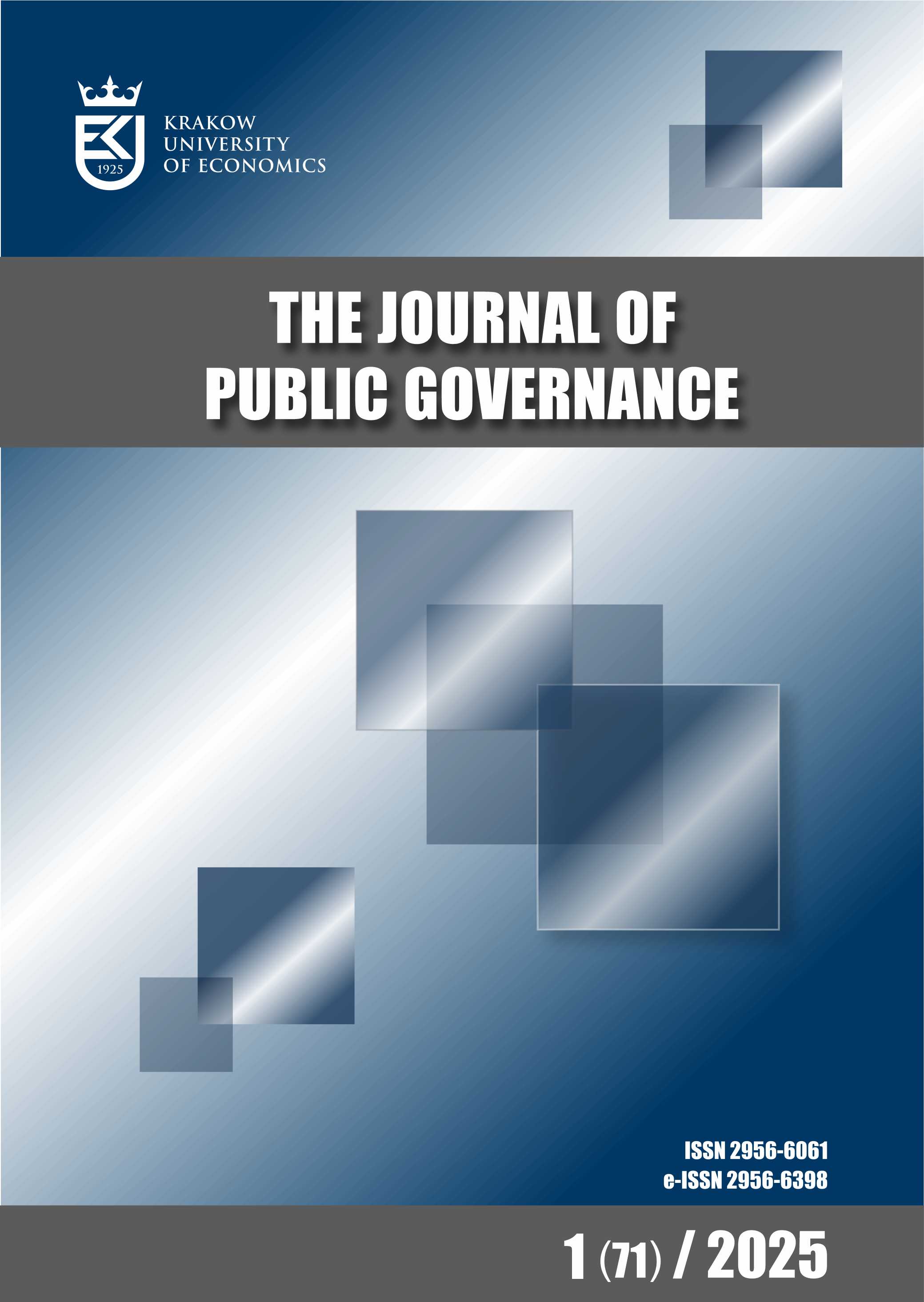Sovereignty and Necropolitics in the Ideas of the Reconstruction of the Russian World
DOI:
https://doi.org/10.15678/PG.2025.71.1.02Keywords:
necropolitics, soft power, sovereign democracy, the Russian worldAbstract
Objective: This article explores the confrontation between Russia and the Western world as a clash between two philosophical visions of sovereignty and international order.
Research Design & Methods: Using the qualitative approach based on critical discourse analysis, the article examines state propaganda narratives, public opinion data, and theoretical frameworks of necropolitics, biopower, and sovereign decisionism.
Findings: The study reveals that Russia’s political model redefines sovereignty through necropolitical governance, promoting imperial ideology and undermining democratic values in Eastern Europe.
Implications / Recommendations: This shift has significant implications for regional governance, weakening democratic institutions and fostering authoritarianism.
Contribution / Value Added: The article provides a theoretical contribution to the understanding of sovereignty and power in post-Soviet space, linking propaganda, political philosophy, and systemic transformation.
Article classification: theoretical paper
JEL classification: Y8, Z00
Downloads
References
Appelbaum, A. (2020). Twilight of Democracy: The Seductive Lure of Authoritarianism. Random House LLC.
Argounova-Low, T. (2007). Natsionalizm: Enemies and Scapegoats. Sibrica: Interdisciplinary Journal of Siberian Studies, 6(1), 30–58.
Balakrishnan, G. (2000). The Enemy: An Intellectual Portrait of Carl Schmitt. Verso.
Bataille, G. (1988). Oeuvres complètes, Vol. XII. Gallimard.
Bowring, B. (2013). Law, Rights and Ideology in Russia: Landmarks in the Destiny of a Great Power. Routledge.
Davies, N. (2007). No Simple Victory: World War II in Europe, 1939–1945. Penguin Books.
Engelking, W. (2019). Stan wyjątkowy i stan bez nazwy w myśli Carla Schmitta. Propozycja rozdzielenia. Archiwum Filozofii Prawa i Filozofii Społecznej, 1(19), 15–26. https://doi.org/10.36280/AFPiFS.2019.1.15
Foucault, M. (2003). Society Must be Defended: Lectures at the Collège de France, 1975–76 (R. Hurley, Trans.). Pantheon Books.
Freedom House. (n.d.). Civil Liberties. Freedom of Expression and Belief. Available at: https://freedomhouse.org/country/russia/freedom-world/2023 [accessed: 03.10.2024].
Habermas, J. (1987). The Philosophical Discourse of Modernity (F. Lawrence, Trans.). MIT Press.
Holodomor Museum. (n.d.). Propaganda. Available at: https://holodomormuseum.org.ua/en/propaganda/concert-at-luzhniki-on-18-march-2022/ [accessed: 03.10.2024].
Levada Analytical Centre (n.d.). Putin’s approval rating and assessment of situation in the country. Available at: https://www.levada.ru/en/ratings/assessment-of-situation-in-the-country/ [accessed: 03.10.2024].
Lipatov, A. (2000). Rosja i Polska – „domowy spór” Słowian czy konflikt mentalności. Napis, 6, 245–255.
Lytvynenko, O. V. (2012). A Ghost in the Mirror: Russian Soft Power in Ukraine. Chatham House.
Mäkinen, S. (2011). Narrative on the Future of Russia: Making Russia a World Leader. Journal of Communist Studies and Transition Politics, 27(2), 143–165.
Mattern, J. B. (2005). Why soft power isn’t so soft: Representational force and the sociolinguistic construction of attraction in world politics. Millennium: Journal of International Studies, 33(3), 583–612. https://doi.org/10.1177/03058298050330031601
Mbembe, A. (2003). Necropolitics (L. Meintjes, Trans.). Public Culture, 15(1), 11–40.
Mbembe, A. (2019). Necropolitics (S. Corcoran, Trans.). Duke University Press.
Meier, H. (1998). The Lesson of Carl Schmitt: Four Chapters on the Distinction Between Political Theology and Political Philosophy. University of Chicago Press.
Nye, J. S. (2004). Soft Power: The Means to Success in World Politics. PublicAffairs.
Rysiewicz, M. (2010). Gdy prawo ustaje i wkracza siła… Stan wyjątkowy w myśli prawno-państwowej Carla Schmitta. Dialogi Polityczne, 13, 77–93. https://doi.org/10.12775/DP.2010.005
Schmitt, C. (2005). Political Theology: Four Chapters on the Concept of Sovereignty. University of Chicago Press.
Shevtsova, L. (2008). After the Battle: What the August Conflict Will Mean for Russia’s Domestic Politics. Chatham House.
Shulman, S. (2004). The contours of civic and ethnic national identification in Ukraine. Europe-Asia Studies, 56(1), 35–56. https://doi.org/10.1080/0966813042000170181
Snyder, T. (2018). The Road to Unfreedom: Russia, Europe, America. Tim Duggan Books.
Snyder, T. (2020). Sketches from a Dark Time: Reflections on Violence and Modernity. Tim Duggan Books.
Solzhenitsyn, A. (1991). Rebuilding Russia: Reflections and Tentative Proposals. Farrar, Straus and Giroux.
Tismăneanu, V. (1998). Fantasies of Salvation: Democracy, Nationalism, and Myth in Post-Communist Europe. Princeton University Press.
Tismăneanu, V. (2001). Understanding Nationalism: Power, Politics, and Identity. Woodrow Wilson Center Press.
Visker, R. (1992). Habermas on Heidegger and Foucault: Meaning and Validity in The Philosophical Discourse of Modernity. Radical Philosophy, 61, 15–22.
Wójcicki, K., Kowalska, M., & Lelonek, A. (2017). Rosyjska wojna dezinformacyjna przeciwko Polsce. Instytut Pułaskiego. Available at: https://pulaski.pl/wp-content/uploads/2015/02/RAPORT-Rosyjska-wojna-dezinformacyjna-przeciwko-Polsce.pdf [accessed: 03.10.2024].
Downloads
Published
Issue
Section
License
Copyright (c) 2025 Author

This work is licensed under a Creative Commons Attribution 4.0 International License.



